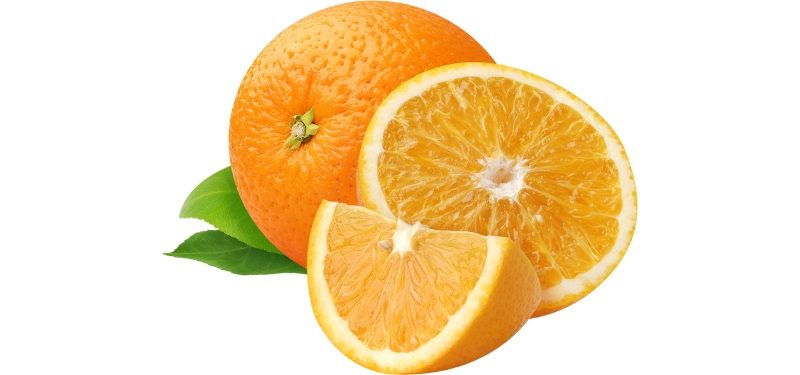Preserve your immune system with a fist bump vs a handshake! Here are some simple tips to safeguard your immune system. Wash your hands often, eat nourishing food, reduce stress, get adequate rest, and Do not Shake Hands!
The Benefits of a Fist Bump
The term “germs” refers to the microscopic bacteria, viruses, fungi, and protozoa that can cause disease. Viruses are even smaller than bacteria. They are not even a full cell. See KidsHealth from Nemours “Germs: Bacteria, Viruses, Fungi, and Protozoa”.
You can lessen the spread of germs by using the simple fist bump. A handshake passes the largest number of germs, a high-five, passes only half the germs of a handshake, and the fist bump will pass only one-tenth the number of germs that a handshake does.
Safeguard Your Health
Quality sleep, regular exercise, proper hand-washing and keeping your distance from those who are sick are all important. What you eat is also vitally important. You will want to include vitamins A, C, and D and E; as well as minerals zinc; omega-3 fatty acids and antioxidants in your diet. Vitamin B-6 stimulates your body’s production of white blood cells to protect you against germs and illnesses.
This site contains affiliate links to products. I may receive a commission for purchases made through these links. Any commission I receive will not influence the price you pay.
Antioxidants Are a Huge Support to Your Immune System
The three major antioxidant vitamins are beta-carotene, vitamin C, and vitamin E. They are in colorful fruits and vegetables. Purple, blue, red, orange, and yellow-colored fruit, and vegetables are chocked full of these antioxidants.
Foods rich in antioxidants boost your immune system and protect your body from the effects of free radicals. Antioxidants can also help reduce inflammation in your body.
Why not try a smoothie made up of green tea, unsweetened pineapple chunks, papaya chunks, ground flaxseed, grated ginger root and turmeric? It tastes great and has all the antioxidants you could want.
15 Foods to Strengthen Your Immune System
- Beans and legumes
- Berries
- Broccoli
- Citrus Fruit – grapefruit, lemons, limes and tangerines
- Dark Chocolate
- Eggs
- Fatty Fish – salmon, mackerel and herring contain omega-3 fatty acids DHA and EPA, and natural sources of D and zinc
- Green Tea
- Leafy Greens
- Lean Meats
- Nuts and Seeds
- Spices – contain
a bevy of anti-bacterial, anti-microbial, antioxidant, antiseptic, and anti-inflammatory agents that will help your immune system fight all types of infections. - Sweet Potatoes
- Whole Grains – oatmeal, millet, quinoa, barley, buckwheat, and brown rice
- Yogurt – rich in probiotics

Foods with More Vitamin C Than An Orange
- One-half cup of chili peppers
- 1 cup kale
- 1 small papaya
- Strawberries
- Green Bell Peppers
- Cauliflower
- Pineapple
- Kiwi
- Guava
I found an interesting tidbit of information while researching this post. Mankind and primates do not produce their own vitamin C, but mice, cats, dogs, elephants, and other members of the animal kingdom do make their own vitamin C. How interesting!
Sleep
Good sleep is not just nice to have, it is essential to your health. Without essential rest, it would take you longer to recover, were you to get sick.
There is a protein released by your immune system called
cytokines. These soldiers in the body, fight off infection when it is detected in the body. When you don’t get enough sleep, your body produces less cytokines and you have fewer defenses against a virus.
It is recommended that we get between 7 to 9 hours of sleep each night. That sleep needs to be quality sleep.
Have a Routine
I so often recommend having a good routine in our lives. Sleep is one of those important routines that we need. Getting interested in an exciting TV show is a good way to interrupt our needed sleep cycle. Scrolling through smart phones can be time-consuming and sleep depriving as well.
We have heard that the blue light of our electronic gadgets is a robber of our sleep. Turn them off or put them in another room when it is time to go to bed.

The Benefits of Sunshine to Your Immune System
Our bodies have a natural rhythm that responds to the natural cycle of daylight and darkness. Even the animal kingdom is influenced by the rise and fall of the sun.
Circadian rhythms
are physical, mental, and behavioral changes effecting our bodies. The main cue influencing circadian rhythms is daylight.
Circadian rhythms help determine our sleep patterns. Those who work shift-work have their circadian rhythm disturbed, which may cause them some difficulty in sleeping.
It helps to get in the natural sunshine for at least 20 minutes a day. Getting a proper night’s sleep helps in maintaining a positive outlook on life.
Exercise
Thirty minutes of moderate exercise each day keeps the blood moving to all the cells in your body and the oxygen circulating as well.
Jump rope, walk in place, aerobic stepper, rebounder, exercise bike, treadmill are all things you can do at home.
Stay Hydrated
Your body uses water in its cells, organs, and tissues. You lose water when you breathe, sweat and in your digestion. It is important to drink 6–8 glasses of water each day.
Water removes toxins from building up in the body. It is beneficial to drink water first thing in the morning to cleanse your system.
Curtail Daytime Napping
A short nap of 20 to 30 minutes may help increase alertness, improve your mood and your performance. It may give you better reaction time and sharpen your memory.
Some people find napping causes havoc with their nighttime sleep. Taking too long of a nap can backfire on you. You may have trouble sleeping at night if you sleep during the day.
Relax
Spend time with those you enjoy, though, now in a virtual way. Laughing and having fun, can lower stress hormones which increases your immune function. Laughing releases endorphins, our natural feel-good chemicals. But when you can get together again and greet your friends, do it with a fist bump vs a handshake!
Deep Breathing
Take deep breaths, in through the nose out through the mouth. Let your belly fill with air as you inhale through your nose. With your hand on your belly, feel it rise and fall as you inhale and exhale. Your chest is not where you feel all the action going on, it will be in your belly, as it rises and falls.
Your breath is a powerful tool to help you relax. It only takes a few minutes to get huge benefits.
Those on the front line only have a short time to sleep, they must learn to relax quickly so they can fall sleep. Do you have insomnia? By learning how to deep breathe, you can slow your heart rate down and fall asleep in a short amount of time.
Bedtime Tips – Set a Routine
- Turn off electronic devices Turn off the TV, avoid the late-night news. De-stress by slow breathing or yoga. Now is not the time to do your exercises for the day, it is time for you to be winding down. It is best for you to get your regular exercise in the morning or afternoon. Allow your heart rate to slow to a relaxed pace about an hour before bedtime.
- Avoid caffeine late in the day.
- Minimize alcohol
- If you just cannot fall asleep, do not lie in bed, awake for long periods of time. Get out of bed and do a quiet activity such as read a book or write in your journal.
No Smoking
Cigarette smoke does not help your immune system. It contains at least 43 known carcinogens. Every time you smoke, your body tries to fight every foreign chemical you have introduced to it, leaving your immune system unfit to fight against disease. If you get a respiratory illness, the effects of smoking, make it harder for you to recuperate.
In Conclusion
Take care of yourself. Add a variety of colors and textures of food to your diet to insure you get a well-balanced number of vitamins and minerals in your diet. Wash your hands, get exercise, and a good night’s sleep. Relax! And remember to use a fist bump vs a handshake!
Please Leave a Comment
I would love to hear from you and your experiences with social distancing at this time.
Reference: See KidsHealth from Nemours “Germs: Bacteria, Viruses, Fungi, and Protozoa”.
Disclaimer: If you have any concerns or questions about your health, you should always consult with a physician or other healthcare professional. No content on this site should be substituted for direct medical advice from your doctor or other qualified healthcare practitioners. The information contained here is for informational purposes only. It is from my research and personal experience.


Ha! This is such a topic for the day, isn’t it? Handshaking suddenly has become a dangerous sport. A first bump vs handshake – once probably no more than a social behavior question – is now a health question. So true. But with the spread of COVID, we must adapt.
What about the elbow bump, though? It’s not catching on, but it has been certainly recommended as safest yet! 🙂
Hi Gregory,
Thanks for stopping by with your comment. Yes, the handshake is going to become a thing of the past. When I wrote of the fist bump, I had not yet heard of the elbow bump. I think that will catch on soon and be the new norm. Life goes on, and we are all adjusting to ways of the new norm!
All the best,
Good tips. I also understand that spending time outside for 30 min a day to get vitamin D helps. Also using some sort of mouthwash with natural contents.
As long you stay away from fake food and eat organic food you can boost your immune system. Also do not give into all the fear.
Hi Sam, and thanks for stopping by with a comment! Yes, fresh water, sunshine, fresh air, exercise, a healthy diet and a good night’s sleep are all great in keeping us in tip-top condition.
After the writing of this article I learned of the elbow bump. That also helps us keep from spreading germs. We do not need to live in fear of germs, but it is good to practice healthy hygiene as we take good care of our bodies.